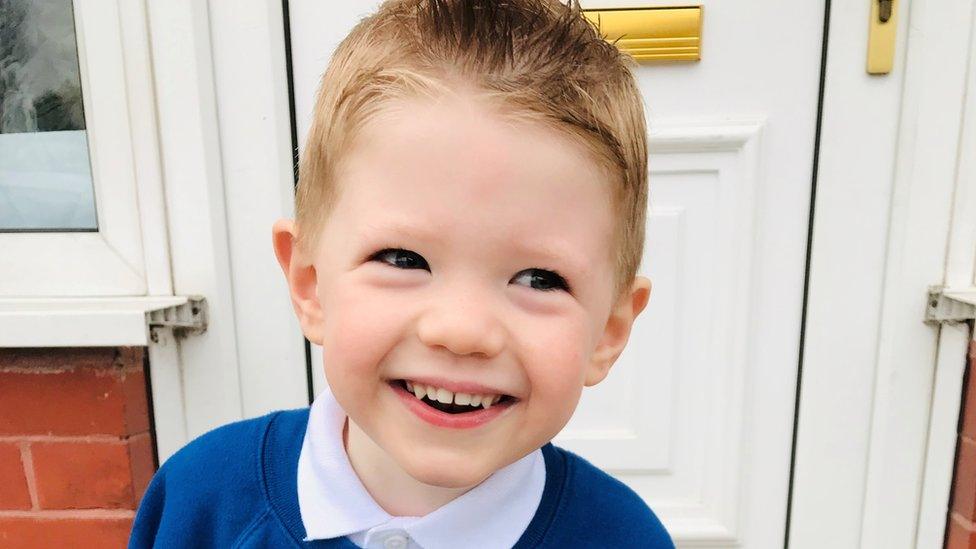Febrile seizures: Health bodies called to take action to prevent child deaths
- Published
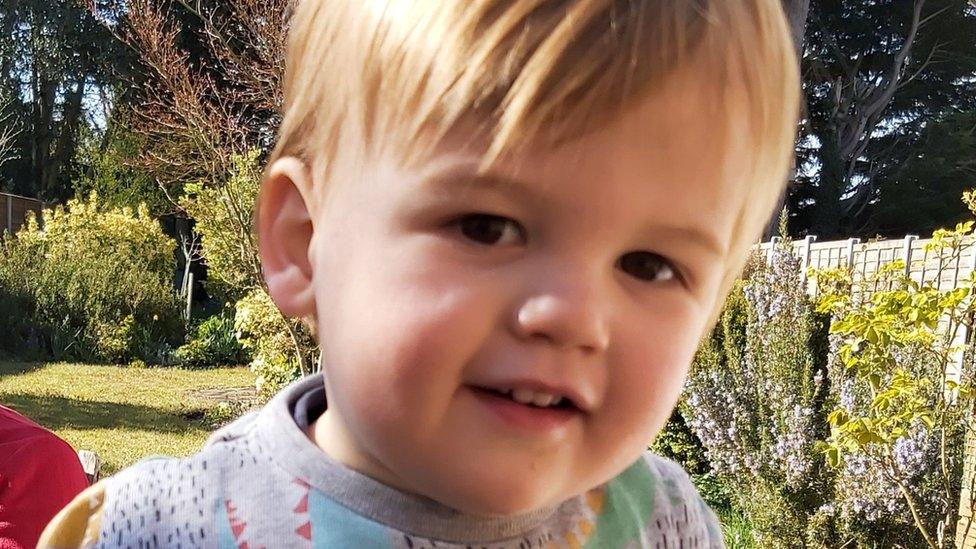
Louis died shortly before his second birthday
An inquest report into the death of a young boy who died at home in his sleep has called for health bodies to take action to prevent further deaths.
Louis Rogers' death was initially categorised as Sudden Unexplained Death in Childhood (SUDC) but the report recorded febrile seizures contributed.
Better training for GPs into the condition has been listed by the coroner as one of the recommendations.
The health bodies said they were considering the coroner's report.
The recommendations were made to six health authorities: Royal College of Paediatricians, Joint Royal Colleges Ambulance Liaison Committee, National Institute for Health and Care Excellence (NICE), Royal College of General Practice, Royal College of Emergency Medicine and NHS England.
The release of the report follows an inquest earlier this month at Surrey Coroner's Court, at which the coroner Karen Henderson said Louis had died from cardio respiratory arrest contributed to by tonic clonic seizure. A febrile seizure is a type of tonic clonic seizure triggered by a fever.
His death was initially categorised as SUDC, a rare category where the cause remains unknown.
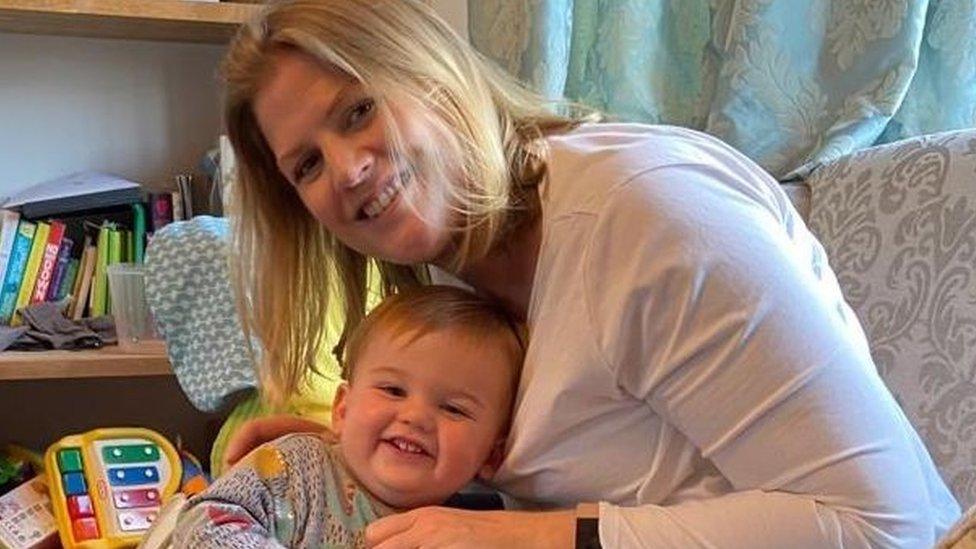
Julia Rogers said it was important that febrile seizures had been recognised as a contributory factor in her son's death
It is estimated about a third of SUDC cases involve febrile seizures, however the link between febrile seizures and SUDC has not been proved.
Currently very little research has been carried out into SUDC; only 55 papers have been published worldwide on it whereas 12,000 have been conducted into Sudden Infant Death Syndrome (SIDS), a condition also known as cot death. Since the early 1990s there has been an 80% reduction in these deaths.
The recommendations include:
A greater emphasis on medical education, research and public information for sudden unexpected deaths associated with febrile seizures
Referrals for assessment of febrile seizures should be undertaken earlier to exclude more severe underlying illnesses
The NHS website and pamphlet given to parents and guardians following a child's febrile seizure should be updated to help assist them in picking up potential early indicators of a more severe illness
"Robust national guidance" and education should be given to GPs so that timely referrals could be made
A checklist should be provided for health practitioners so that a child was not given a misdiagnosis of a febrile seizure
Records of all contact with health practitioners - including GPs and paramedics - should be available for all
Following the report's release, Louis' mother Julia Rogers has said it is important to the family that seizures are recognised as a cause of her son's death.
"Louis' febrile seizures in the nine months before he died were dismissed despite recurrence and other worrying episodes," she said.
"It has taken more than 18 months to feel heard and we're thankful the coroner listened to the evidence and has taken action.
"Parents don't need reassurance they need to be empowered with information including what to do when your child has a witnessed seizure, how to manage nocturnal seizure and how to know what to look out for. In Louis' case his flitting eyes, incoordination and slight developmental delay were all relevant but we didn't know."
Dr Nikki Speed, from the charity SUDC UK, said: "The greatest challenge here is consistent awareness and training across the whole country.
"Febrile seizures affect families everywhere so we believe this work should be a priority in every area, without exception."

Sudden unexplained death in childhood
SUDC covers children aged one and above
Although the number of deaths is difficult to determine, it is estimated that about 40 children over the age of one die suddenly every year - more than young child deaths from traffic accidents, fires or drowning
It is one of the leading categories of death in England and Wales for children aged between one and four
Office of National Statistics (ONS) data from 2020 and 2021 shows SUDC is the fourth leading category of death in one to four-year-olds in England and Wales
As with cot deaths, most SUDC cases occur during sleep
It is estimated about a third of SUDC cases involve children who have had febrile seizures
Source: NHS England / SUDC Charity, external

Dr Michael Mulholland, honorary secretary of the Royal College of General Practice, said: "This is a tragic case, and we extend our deepest condolences to the family of Louis Rogers. We await receipt of the coroner's report and will address its questions directly, as appropriate.
"Identifying children who are suffering with seizures, and appropriately referring them to specialist services, is covered in the RCGP [Royal College of General Practice] curriculum, which GP trainees must demonstrate competence of in order to practice independently as a GP, and on ongoing basis throughout their career through continued professional development."
An NHS spokesperson said it was working to review patient information, including its website and information for families, around febrile seizures and SUDC.
NICE said it followed an "established process when making sure our published guidelines are current and accurate, and take a proactive approach to responding to events that may impact on our recommendations".
The managing director of the Association of Ambulance Chief Executives (AACE), Martin Flaherty OBE, QAM said: "We extend our sincere condolences to the family of Louis Rogers.
"We will now work with the relevant experts on behalf of our UK ambulance service members to review the coroner's findings and will respond in due course."

If you have been affected by the issues raised in this story, help and support is available via the BBC Action Line

Follow BBC London on Facebook, external, Twitter , externaland Instagram, external. Send your story ideas to hellobbclondon@bbc.co.uk, external
Related topics
- Published17 January 2023
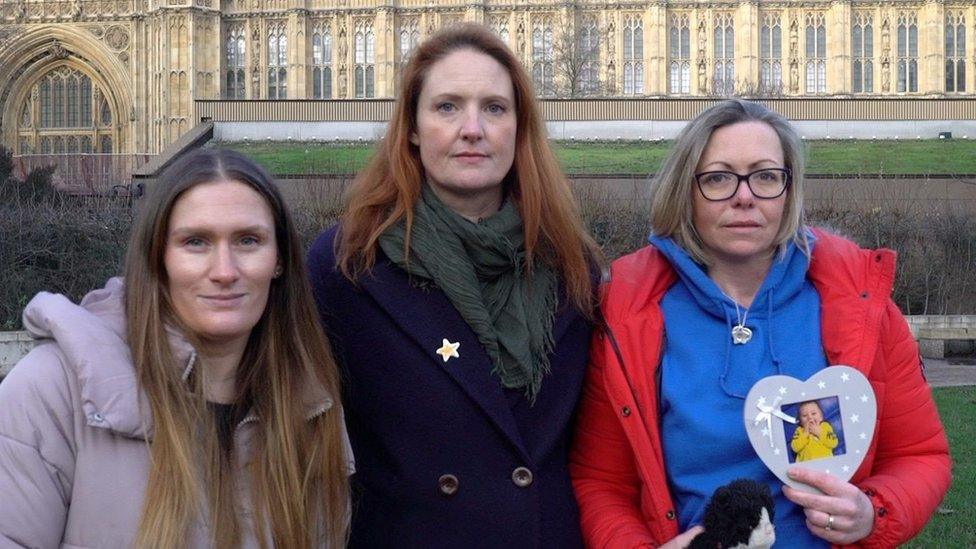
- Published20 June 2022
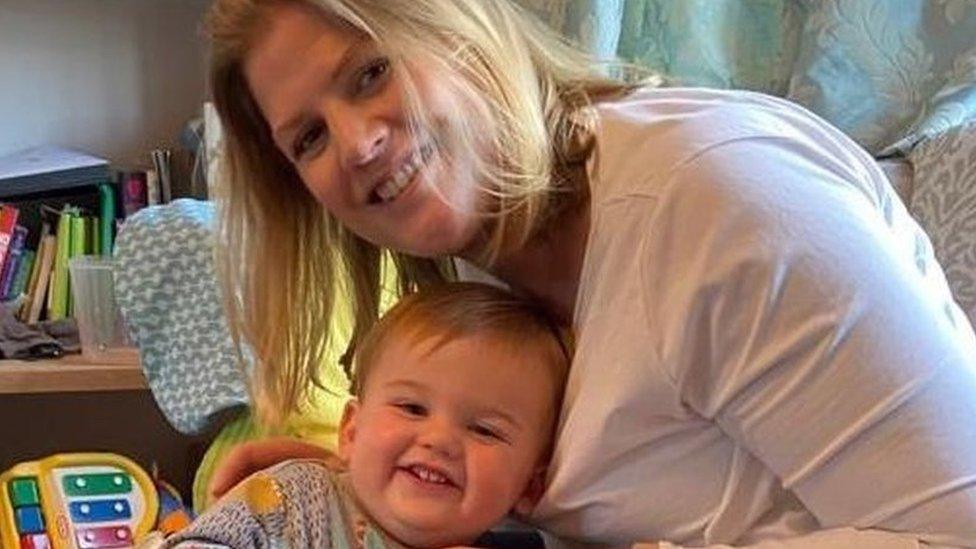
- Published15 October 2022

- Published8 October 2022

- Published18 June 2022
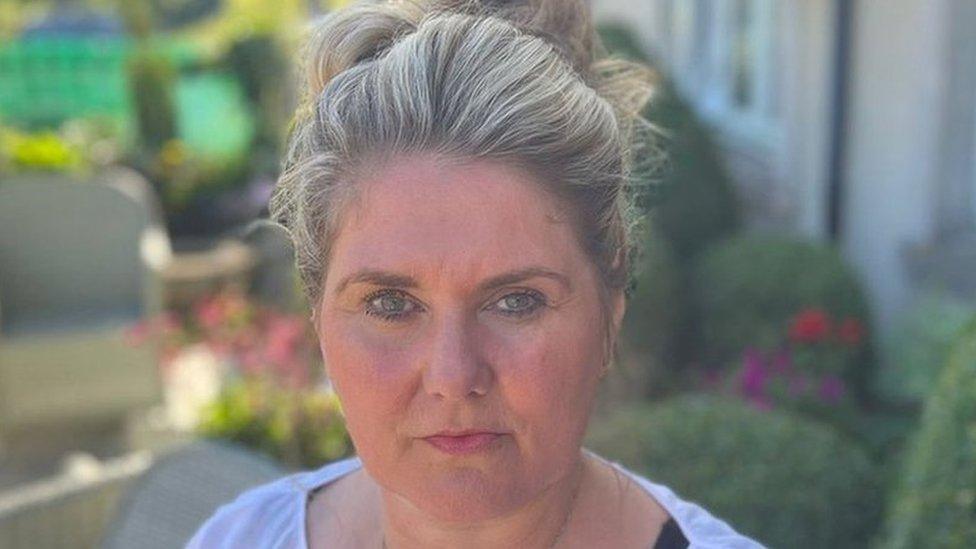
- Published10 March 2021
